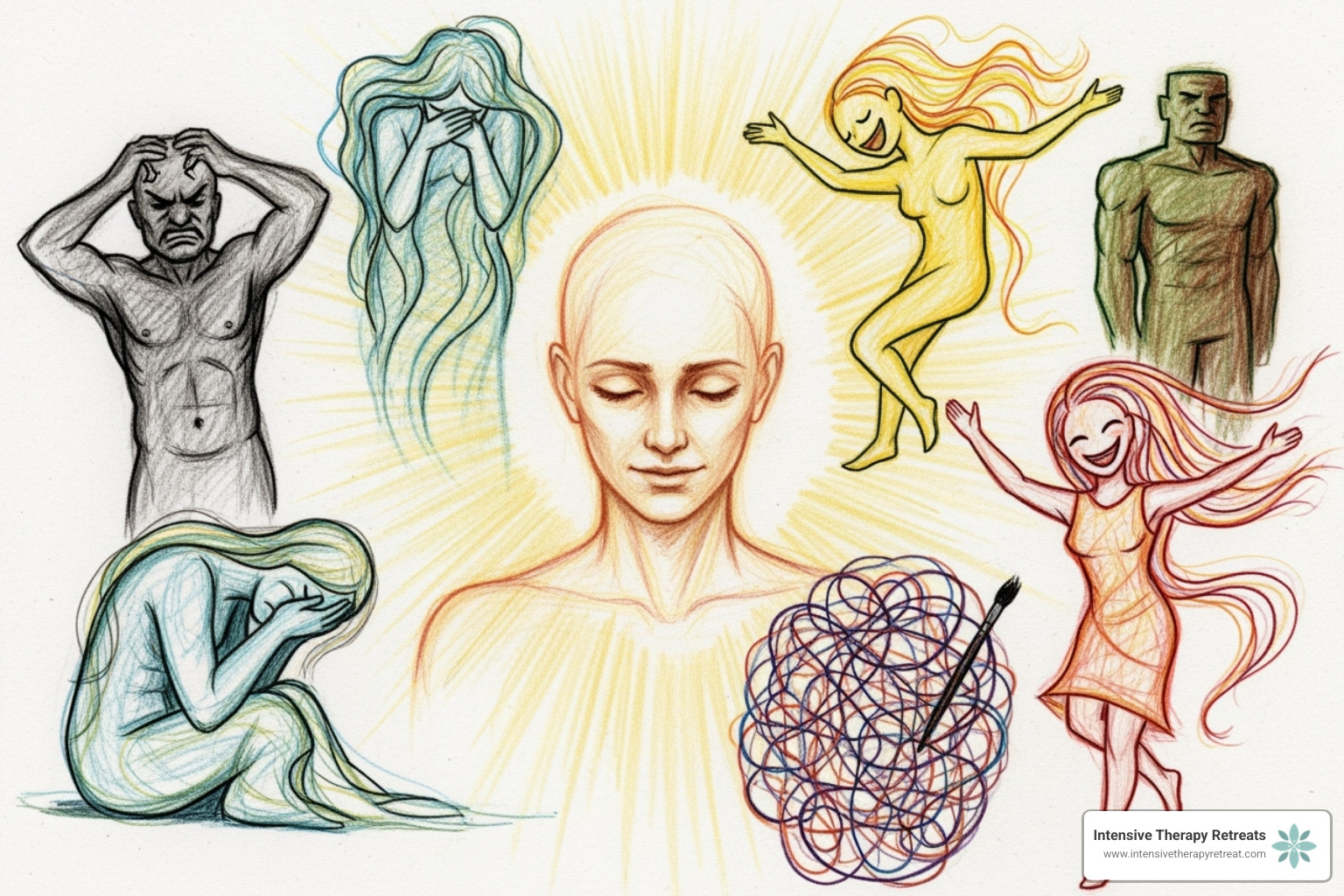ifs books: Best Reads 2025
Understanding Your Inner World
Searching for ifs books means you’re looking to explore Internal Family Systems (IFS) therapy. This powerful approach helps us understand our inner world. If you want to dive in, here are some top recommended titles:
- No Bad Parts: Healing Trauma and Restoring Wholeness with the Internal Family Systems Model by Richard C. Schwartz
- Self-Therapy: A Step-By-Step Guide to Creating Inner Wholeness Using IFS by Jay Earley
- You Are The One You’ve Been Waiting For: Bringing Courageous Love To Intimate Relationships by Richard C. Schwartz
- Introduction to the Internal Family Systems Model by Richard C. Schwartz
Internal Family Systems, or IFS, is a groundbreaking way to look at our minds. It suggests we all have different “parts” inside us, each with its own feelings and roles. Instead of seeing these parts as problems, IFS helps us understand and work with them. This leads to inner healing and peace. Dr. Richard C. Schwartz developed this model. It is now recognized as an evidence-based therapy.
Having worked in the field for decades, I’ve seen the transformative power of IFS and the importance of accessible ifs books in guiding individuals toward healing. My experience with various therapeutic models, including EMDR, has always centered on helping clients tap into their innate drive to flourish.
At its heart, IFS challenges the traditional “mono-mind” theory, which suggests we have a single, unified identity. Instead, it posits that we are born with many sub-minds—or parts—that are not imaginary or symbolic. These parts are like an internal family, each with its own personality, beliefs, and even age. When these parts become polarized or burdened by past experiences, they can cause inner conflict and emotional distress. The goal of IFS is to help us access our “Self”—our core of clarity, compassion, curiosity, courage, and calmness—to heal and integrate these parts. This process helps us restore wholeness and achieve inner harmony.
The significance of IFS as a therapeutic approach is underscored by its recognition in SAMHSA’s National Registry of Evidence-Based Programs and Practices. This validates its effectiveness in addressing a wide range of mental health challenges, from trauma and anxiety to addiction and relationship issues. The beauty of IFS lies in its compassionate stance: it asserts that there are “no bad parts,” only parts that have taken on extreme roles to protect us. Through understanding and unburdening these parts, we can achieve profound and lasting healing. To learn more about this transformative approach, we invite you to explore The Practice of Internal Family Systems (IFS).
Here’s a quick look at the core concepts of IFS:
The Essential Reading List: Our Top Picks for IFS Books
Ready to dive deeper into IFS? You’re in good company! The literature on Internal Family Systems is rich and ever-growing, with hundreds of ifs books out there. It can feel a little overwhelming to figure out where to start, but don’t worry – you’ve found your trusted guide.
This section is here to help you steer the best ifs books available today. We know that every reader has unique needs. Maybe you’re just curious about your inner world, or perhaps you’re a mental health professional looking to deepen your clinical practice. Or maybe you’re seeking practical exercises for your own self-help journey. Whatever your goal, we’ve carefully curated a list of recommended titles, highlighting what makes each one special, so you can find the perfect match for your path to healing.
Best for Beginners: Your Starting Point into IFS
For those just dipping their toes into the fascinating waters of Internal Family Systems, picking the right first book can make all the difference. We suggest starting with titles that offer clear, friendly introductions to the core ideas without getting bogged down in overly technical language. Think of them as your welcoming committee to the IFS universe.
Our top pick for beginners is Richard C. Schwartz’s No Bad Parts: Healing Trauma and Restoring Wholeness with the Internal Family Systems Model. This book is a true treasure, celebrated far and wide for how gently yet profoundly it explains the IFS model. It beautifully shares the core IFS idea: that every part of us, even those we might see as “negative,” actually has a good intention. It walks you through how to understand and befriend your inner parts, leading to deep healing from past hurts and a return to wholeness. It’s no wonder this book is so highly rated, making it a very trusted resource for many.
Another excellent starting point, especially if you prefer a quick and clear overview, is Richard C. Schwartz’s Introduction to the Internal Family Systems Model. As the title suggests, this book gives a concise look at IFS. Many experienced IFS practitioners recommend it as a great “first read” to grasp the essential concepts before exploring more complex applications. Both of these ifs books are fantastic gateways to understanding how IFS therapy works and how it can help you heal. To learn even more about the mechanics behind this powerful therapy, we invite you to explore How Does Internal Family Systems Therapy Work?.
Top IFS Books for Self-Help and Personal Growth
Many people are drawn to IFS because it offers such a powerful way to understand themselves and grow personally. If you’re eager to do your own inner work and become more aware of what’s happening inside you, several ifs books are specifically designed to guide you on this journey.
A true standout in this category is Jay Earley’s Self-Therapy: A Step-By-Step Guide to Creating Inner Wholeness Using IFS. This book consistently receives praise for its practical, hands-on approach. It provides a detailed, step-by-step guide to applying IFS principles on your own, complete with helpful examples and exercises. As one reader shared, “Jay Earley’s Self-Therapy is the best one I’ve come across to go through the whole model step by step with examples. My husband and I both are going through it. Just love it!” It’s an invaluable resource for those who prefer to actively do the work, rather than just read about IFS, acting as a bridge from understanding to engaging with your inner world.
For those who learn best visually, or anyone new to exploring their inner landscape, Dr. Tom Holmes PhD’s Parts Work: An Illustrated Guide to Your Inner Life offers a truly unique and engaging path. This book uses beautiful illustrations to make complex IFS ideas easy to grasp and relatable. It helps readers visualize and understand their internal system in a fresh way, making it easier to connect with the many parts that make up your inner world.
Another excellent resource for personal growth, especially when it comes to dealing with challenging inner voices, is Jay Earley’s Freedom from Your Inner Critic. This book offers a self-therapy approach to changing your inner critic from an adversary into a supportive ally. It explores why those self-sabotaging voices show up and introduces the idea of an ‘Inner Champion,’ giving you practical steps to build your self-worth. As Earley explains, “You don’t want to give in to the Critic, and it doesn’t really work to fight against it… But there is a way to transform it into an invaluable ally.” These ifs books give you the power to connect with your inner world, grow your self-compassion, and resolve inner conflicts, all at your own comfortable pace. For more guided exercises and tools, we encourage you to explore our Internal Family Systems Therapy Worksheets.
Essential Reads for Therapists and Practitioners
For mental health professionals eager to bring IFS into their clinical practice, a deeper dive into the theory and practical applications of the model is essential. These ifs books provide the comprehensive knowledge and clinical guidance you’ll need to confidently use IFS with your clients.
A foundational text for any practitioner is Richard C. Schwartz and Martha Sweezy’s Internal Family Systems Therapy – 2nd Edition. This book is truly the cornerstone of IFS literature, offering the most authoritative and thorough presentation of the model’s theory and practice. With over 70% new material, it gives clinicians a comprehensive understanding needed to wield IFS as a powerful clinical tool. It digs into the nuances of working with different parts, navigating complex client situations, and helping clients cultivate their own “Self-leadership” within the therapeutic journey.
Another incredibly valuable resource is Frank Anderson’s Internal Family Systems Skills Training Manual: Trauma-Informed Treatment for Anxiety, Depression, PTSD & Substance Abuse. This manual is a highly practical guide for therapists, filled with concrete skills and exercises for applying IFS in treating a wide range of mental health conditions. Dr. Anderson’s work is especially important for its focus on trauma-informed care. It provides clinicians with the tools to address the deep impact of trauma through the compassionate lens of IFS. It’s designed to help practitioners effectively work with clients experiencing anxiety, depression, PTSD, and substance abuse by understanding how their internal parts play a role in these conditions.
These ifs books are truly essential for building a strong understanding of IFS. They will empower you as a therapist to confidently apply its principles in your sessions and help your clients achieve lasting, meaningful change. For a comprehensive overview of the many conditions IFS can help with, visit Various Mental Health Conditions that IFS Can Help With.
Specialized IFS Books for Deeper Dives
Once you’ve gotten a good handle on the basics of IFS, you might feel ready to explore how this amazing model can help with specific life challenges. That’s the beauty of IFS – it’s so adaptable! It offers unique ways to approach a wide range of issues and connect with different parts of ourselves. These specialized ifs books are like focused guides, offering deeper insights and practical strategies for particular areas.
IFS Books for Trauma, Addiction, and Relationships
IFS is truly powerful, especially when it comes to healing old wounds and building stronger connections. If you’re looking for guidance in these crucial areas, these ifs books offer incredible depth.
For anyone navigating the complexities of trauma, Frank G. Anderson’s Transcending Trauma: Healing Complex PTSD with Internal Family Systems is a must-read. Dr. Anderson, a leading expert, shows how IFS helps us tap into our innate healing capacity—our “Self-energy”—to gently work with even the most difficult emotions. This book is invaluable for understanding how IFS can help resolve complex trauma, offering a clear path to recovery. You can also find more information on IFS for Trauma on our site.
Thinking about how your inner world affects your connections with others? Richard C. Schwartz’s You Are The One You’ve Been Waiting For: Bringing Courageous Love To Intimate Relationships dives deep into applying the IFS model to our intimate partnerships. It helps us see how our internal parts shape our interactions and how we can lead with “courageous love” from our core Self. Even if relationships aren’t your main focus, this book offers a wonderful exploration of the IFS model in general. It’s highly praised, with an impressive 4.43 out of 5 stars on Goodreads. While some readers have mentioned that the language and examples might feel a bit traditional, its core insights into using IFS for relationship dynamics are widely celebrated and very helpful.
If you’re curious about how IFS addresses addiction and other behavioral patterns, you’ll find great wisdom in Cece Sykes, Martha Sweezy, and Richard C. Schwartz’s Internal Family Systems Therapy for Addictions. This book shares a compassionate, trauma-informed approach. It helps us understand that even addictive behaviors often stem from a part trying to protect us. By recognizing these protective roles, IFS helps heal the underlying vulnerabilities that drive these behaviors.
Finally, for survivors of child abuse, Regina A. Gouldin and Richard C. Schwartz’s The Mosaic Mind: Empowering the Tormented Selves of Child Abuse Survivors offers a unique and supportive perspective. This book provides deep insights into how IFS can help those who have experienced severe trauma. It guides individuals in having inner dialogues and healing the wounded parts of their personality, empowering them on their journey to recovery.
These specialized ifs books truly highlight the incredible flexibility and depth of the IFS model. They offer targeted guidance, helping you steer complex life challenges and heal specific wounds with greater understanding and compassion.
Key Authors Shaping the IFS Landscape
The landscape of IFS literature has been significantly shaped by a handful of visionary authors whose contributions have propelled the model from its inception to its current widespread recognition. Understanding who these key figures are and their notable works can help you steer the vast collection of ifs books.
- Dr. Richard C. Schwartz: The founder of the Internal Family Systems model, Dr. Schwartz is undeniably the most pivotal author in IFS literature. His early work laid the theoretical foundation, challenging traditional psychiatric views and proposing the concept of internal multiplicity. His book, Internal Family Systems Therapy (co-authored with Martha Sweezy), is considered the definitive text for practitioners. However, it’s his more recent works like No Bad Parts: Healing Trauma and Restoring Wholeness with the Internal Family Systems Model that have brought IFS to a broader audience, making its profound concepts accessible to everyone. His contributions emphasize the innate wisdom of the Self and the compassionate approach to healing all parts.
- Jay Earley PhD: A prominent figure in making IFS accessible for self-help, Dr. Earley is best known for his “Self-Therapy” series. His book, Self-Therapy: A Step-By-Step Guide to Creating Inner Wholeness Using IFS, has become a go-to resource for individuals seeking to apply IFS principles on their own. He excels at breaking down complex concepts into practical exercises, bridging the gap between theoretical understanding and personal application. His work also extends to specialized topics like the inner critic, demonstrating the versatility of IFS for personal growth.
- Frank G. Anderson MD: As a psychiatrist and trauma specialist, Dr. Anderson has significantly contributed to the application of IFS in trauma healing. His book, Transcending Trauma: Healing Complex PTSD with Internal Family Systems, is highly regarded for its integration of neuroscience with the IFS model, providing a deeper understanding of how trauma impacts the internal system and how IFS can facilitate profound healing. He also co-authored the Internal Family Systems Skills Training Manual, making his contributions invaluable for practitioners.
- Martha Sweezy PhD: A highly respected practitioner and supervisor in the IFS community, Dr. Sweezy is a key collaborator with Dr. Richard C. Schwartz. Her co-authorship of Internal Family Systems Therapy – 2nd Edition solidifies her role in shaping the foundational text for the model. Her work often focuses on the practical application of IFS in clinical settings, providing rich insights for therapists.
These authors, among others, have collectively enriched the field of IFS, providing a diverse array of ifs books that cater to beginners, self-helpers, and seasoned professionals alike.
Frequently Asked Questions about IFS Books
We often get wonderful questions about IFS, and especially about finding your way through ifs books. It’s totally natural to have queries when diving into something so profound! Here are some of the most common questions we hear, along with our warm insights to help guide you.
What’s the difference between books for therapists and books for self-help?
This is a fantastic question, and it’s key to choosing the right ifs books for your journey. The content and approach of these books can feel quite different, simply because they’re written for different audiences.
When you pick up ifs books for therapists, you’re often getting a deep dive into the very foundations of the IFS model. These titles usually explore the detailed “how-to” of clinical applications, offering nuanced case examples and sometimes even the research that shows how effective IFS truly is. They might talk about complex therapeutic techniques, ethical considerations, and how to work with those really challenging client situations. The language tends to be a bit more academic, assuming you already have a background in mental health concepts. Their main goal is to give mental health professionals the comprehensive training and robust understanding they need for professional practice.
On the other hand, self-help ifs books are lovingly crafted for individuals like you. These are for anyone who wants to explore IFS concepts for personal growth and healing, perhaps outside of a formal therapy setting. They focus much more on practical exercises, gentle guided meditations, and language that just feels relatable and accessible to everyone. These books aim to empower you to understand your own amazing internal system, build a deep well of self-compassion, and gently begin the process of unburdening your parts. While they simplify some complex ideas, they still offer truly profound insights and clear, actionable steps for your own inner work. They often highlight the beautiful relationship you can build with your “Self” and how to foster a sense of inner harmony.
While there’s certainly some overlap — a therapist might find fresh perspectives in a self-help book, and a curious individual might enjoy a more theoretical text — knowing this distinction helps you pick the perfect ifs books for what you need right now. For a more in-depth look at the model itself, you can always refer to the Internal Family Systems Model.
Where can I buy these IFS books?
Finding the ifs books you’re looking for is usually quite easy, with several convenient ways to get your hands on them!
For the most authentic and thorough selection, a great place to start is the Official IFS Institute Store. They offer a wide range of titles, including foundational texts and bundles that combine key introductory books. You can often find physical books, eBooks, and even audiobooks directly from the source. Sometimes, they might suggest checking major online retailers if there are shipping limitations, but it’s always worth a look there first!
Of course, online retailers like Amazon.com and Amazon.ca are fantastic places to find a huge selection of ifs books. You’ll often see titles from all the key authors, including Richard C. Schwartz, Jay Earley, and Frank Anderson. Plus, you can frequently choose between physical copies and digital versions like Kindle, making them super accessible.
Don’t forget your local bookstores! Many larger independent stores and popular chains might carry a good selection of IFS titles, especially those focused on self-help or general well-being. It’s a wonderful way to support your community if you can.
And for those who love to read on the go or prefer listening, many ifs books are available in digital formats. eBooks offer instant access and portability, which is super convenient. Audiobooks, like Richard Schwartz’s Greater Than the Sum of Our Parts, can be incredibly valuable, sometimes even including guided meditations that let you practice IFS work as you listen!
So, whether you love the feel of turning physical pages, prefer to listen during your commute, or dive into a digital copy, ifs books are readily available to support your unique healing journey.
Is reading a book enough, or should I see a therapist?
This is such a thoughtful and crucial question, and the best answer really depends on your personal goals and how complex your inner world feels right now.
Reading ifs books is an absolutely wonderful way to begin. They give you a solid understanding of the model, introduce you to the beautiful concept of your parts and your wise Self, and offer valuable tools for self-reflection and personal growth. Many people find incredible benefit from working through self-help ifs books like Jay Earley’s Self-Therapy. They gain profound insights and truly kickstart their own healing journeys. These books can empower you to cultivate genuine self-compassion, gently identify your parts, and truly understand their positive intentions.
However, while ifs books are powerful guides, they generally aren’t a full substitute for personalized therapy. This is especially true if you’re dealing with deeper-seated issues or significant trauma. A trained IFS therapist offers something unique:
A therapist provides personalized guidance, offering custom support to help you steer your unique internal system. They can help you gently identify parts that might be tricky to access or understand on your own. They also offer a crucial sense of safety and containment. When you’re working with highly burdened or extreme parts, especially those connected to trauma, it can feel incredibly intense. A therapist creates a safe space where you can process these experiences without feeling overwhelmed. You’ll also gain an objective perspective. Sometimes, our parts can be so entwined with our beliefs that it’s hard to see them clearly. A therapist offers that fresh, objective viewpoint, helping you differentiate from your parts and access your Self more consistently. Finally, a skilled therapist can often help accelerate your healing. While self-work is incredibly valuable, a professional can facilitate deeper unburdening and integration. As we often share at Intensive Therapy Retreats, a trained professional can help steer complex parts, leading to fast, lasting results that might take months or even years to achieve on your own.
Think of it this way: ifs books are like a fantastic map and guidebook for a challenging trip – they show you the terrain and suggest routes. A therapist, on the other hand, is like an experienced guide who walks right alongside you, helps you over those difficult obstacles, and ensures your safety every step of the way. For profound and truly accelerated healing, especially when trauma is involved, combining self-study with professional guidance can be incredibly powerful. To understand more about how IFS can specifically help with trauma, explore The Power of Internal Family Systems (IFS) to Steer Trauma.
Conclusion: Turn the Page on Your Healing Journey
So, as we reach the end of our journey through ifs books, what have we learned? We’ve finded that these amazing resources are truly a treasure map for your inner landscape.
They offer a gentle invitation to understand your inner world, heal old wounds, and grow in self-compassion and inner harmony.
Whether you’re just starting out with simple introductions, looking for practical guides to help yourself, or you’re a professional seeking deeper insights, there’s an ifs book waiting for you. Each one helps you connect with the brilliant IFS model, showing you how your inner protective parts and exiled parts work, and guiding you back to the calm, wise leadership of your core Self.
These books offer both the knowledge and the hands-on tools you need to begin a truly transformative journey towards feeling whole again.
Now, while these books are incredible guides, sometimes our healing journey calls for something more. Especially when dealing with deep-seated trauma, an immersive experience can make all the difference.
At Intensive Therapy Retreats, we’re here to help you experience profound and accelerated healing. We use powerful, proven methods like IFS, EMDR, and ART. Our goal? To help you find significant healing in days, not months or even years.
If you’re feeling ready to dive deeper and open up the incredible shifts that IFS can bring in a focused, supportive setting, we invite you to take the next step. It’s time to turn the page on your healing journey and step into a life filled with greater inner peace and wholeness. Explore our IFS Therapy Retreats.




